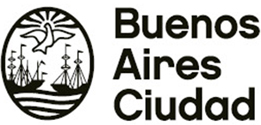The Museo de Arte Moderno de Buenos Aires is honoured to present the first solo exhibition in a Latin American art museum of the work of Linda Matalon (b. USA, 1958), an American artist of Cuban descent living in Brooklyn, New York. The exhibition presents two crucial series from her vast production of works on paper, created across two pandemics which left a deep mark on the artist: AIDS, which so affected the LGTB+ community to which Matalon belongs, in the early 1990s and COVID-19, which has been ravaging our planet since December 2019. Both series are in small format – works on paper which the artist had at hand during the AIDS emergency or the recent lockdowns – and both series hinge on a symbiosis between paper, wax and tar or graphite, materials that merge to enable the technically indelible record of each of her gestures, lines and marks. True palimpsests of the time during which Matalon captured her daily, existential and spiritual experiences and her deepest convictions about art and life, these works, whether urgent or meditative, allow us a glimpse of these crucial moments in our contemporaneity, at both the subjective and the social levels. They are, then, a reflection of their time, of two deep crises that marked historic turning points in human understanding.
But perhaps the strength of Matalon’s drawings lies in the fact that, while they engage with these specific moments, they are articulated in an abstract language capable of pushing the boundaries of individual expression. In her insertion of graphite, in the waxing and scraping of the paper to reveal its soul, Matalon enunciates an energetic, spiritual discourse that invites us to accompany the artist in her responses to a world of pain and loneliness, but also one imbued with the joy of meeting and sharing. Somewhere between drama and bliss, Matalon’s oeuvre inhabits one of the most classical categories in art history: the experience of the sublime, of the beauty that can only be reached after the experience of horror.
Curated by Victoria Noorthoorn
Linda Matalon was born in 1958 in Brooklyn, New York, where she continues to reside. Over the course of her extensive career, which dates back to the late 1980s, her work has been shown in high-profile solo exhibitions at spaces such as Heidelberger Kunstverein, Heidelberg, Germany (2021); Emmanuel Barbault, New York (2019); Blackston, New York (2013); Dartmouth College, Hanover, New Hampshire (2012); Wynn Kramarsky/ Fifth Floor Foundation, New York (2005); Jack Shainman Gallery, New York / The Wolfson Galleries at Miami Dade College, Miami (1997); the Yoshii Gallery, New York and Paris (1992, 1993, 1994), and others. She was artist-in-residence at the prestigious Dartmouth College, USA, and has received several important awards and recognitions, such as the 1991 Cintas Foundation Award and the 1992/3 Provincetown Fine Arts Work Center Fellowship, Provincetown; 1993 Art Matters; 1999 New York Foundation for the Arts, and the 2009/10 Pollock-Krasner Foundation Grant. Her works can be found in the collections of the Centre Pompidou, Paris; the Deutsche Bank Collection, Frankfurt; the Hood Museum at Dartmouth College, Hanover; and The Brooklyn Museum, New York, among others.
Linda Matalon and her indelible marks
A conversation between Gabriela Rangel and Victoria Noorthoorn
Portrait - Linda Matalon
Indelible Traces is the first solo exhibition at a Latin American art museum for Linda Matalon (b. USA, 1958), an American artist of Cuban descent living in Brooklyn, New York. The exhibition presents two pivotal series from her vast production of works on paper, created across two pandemics which left a deep mark on the artist: the AIDS pandemic, which so deeply affected the LGTBQ+ community to which Matalon belongs in the early 1990s; and COVID-19, which has been ravaging the planet since December 2019. Drawing is an important feature of the artist’s output, along with sculpture, and through these two series Matalon brings us closer to her world perspective, her mode of production — solitary and intimate — and to the meaning each material takes on for her when used in her production.


